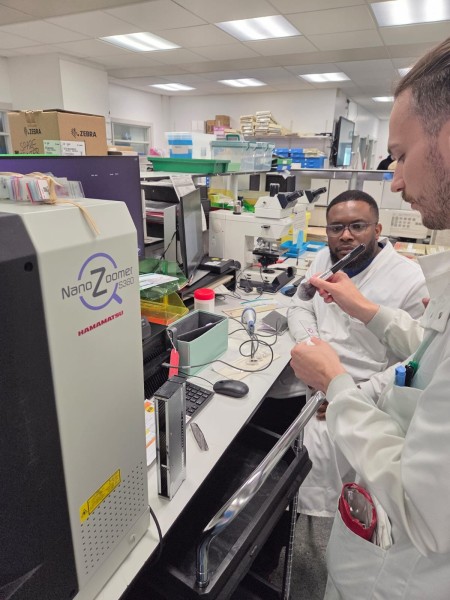Patients across Greater Manchester are set to benefit from faster patholog
The latest laboratory to start using the new technology is based at Wythenshawe Hospital, part of Manchester University NHS Foundation Trust. This is the fourth site out of seven laboratories to make the transition to digital pathology, marking a significant milestone in its commitment to innovation, accuracy and patient care.
The transition replaces traditional glass slide analysis with high-resolution digital imaging, allowing pathologists to view, analyse, and share cases remotely and in real-time. This advancement enhances diagnostic precision, accelerates turnaround times, and facilitates seamless collaboration among specialists across locations. The project was completed following rigorous validation and training phases.
Key benefits of the digital pathology platform include:
- Enhanced diagnostic accuracy through high-resolution imaging and advanced analytics.
- Faster turnaround times for pathology reports, improving clinical decision-making.
- Remote access for pathologists, enabling flexible work environments and expert collaboration.
- Scalability for future integration of artificial intelligence and machine learning tools.
Benjamin Eggington, Advanced Biomedical Scientist – Histopathology at Wythenshawe Hospital said, ‘As a large trust across multiple sites, digital pathology will be a huge benefit to the histopathology service and modernise the way we work. We regularly send physical slides for reviewing across sites which can be time consuming and labour intensive. Digital pathology will eliminate this and make collaborative diagnostic decisions so much faster and simpler meaning patients get their results more quickly. Reporting can be done off site, including at home, greatly increasing flexibility. It will also be invaluable as a training tool for scientists and doctors. Linking in across Greater Manchester will only broaden the expertise and boost these benefits, improving the care we provide to our patients.'
This significant step places Greater Manchester at the forefront of digital transformation in pathology, aligning with data-driven healthcare.
